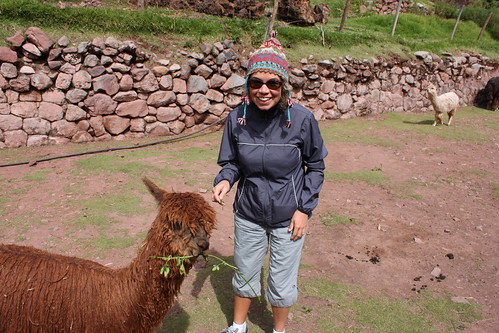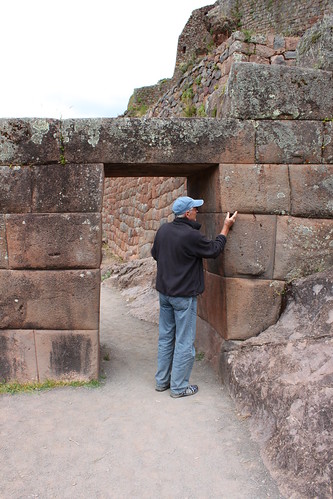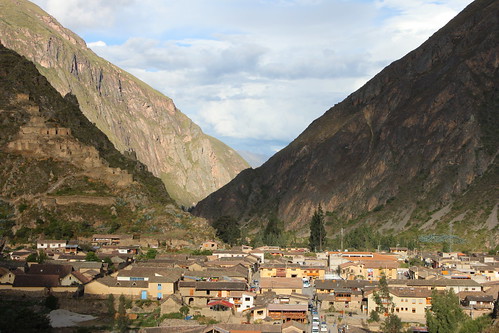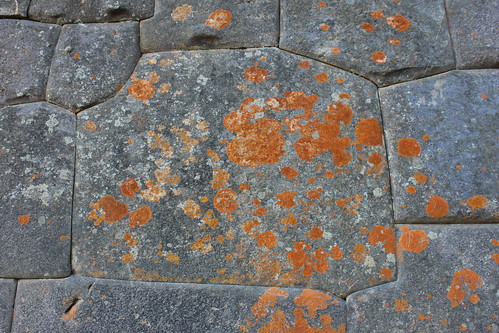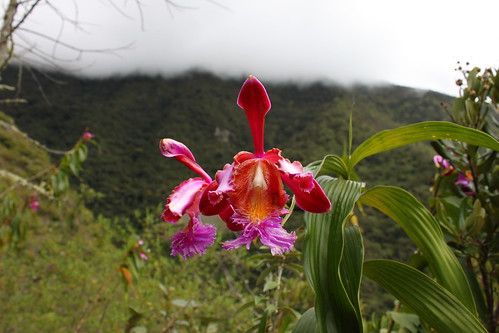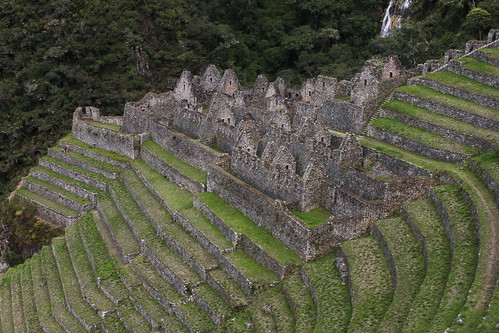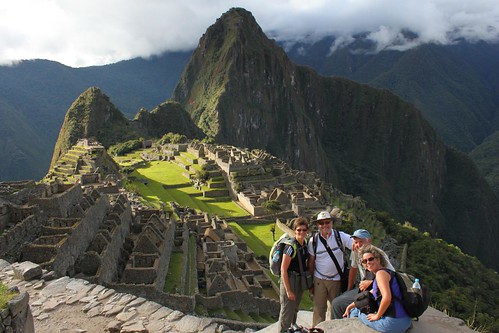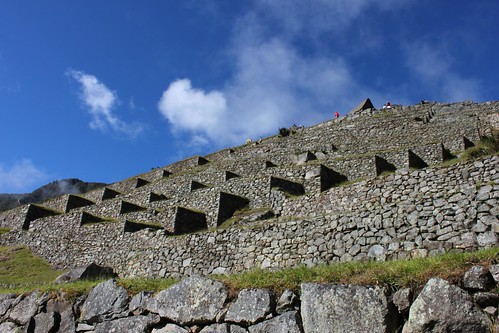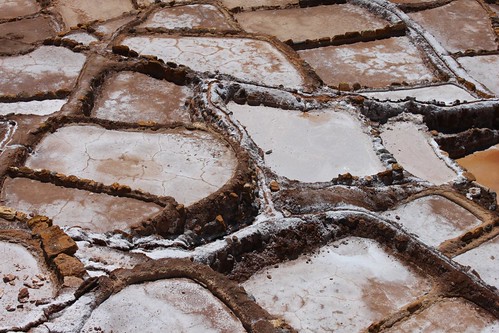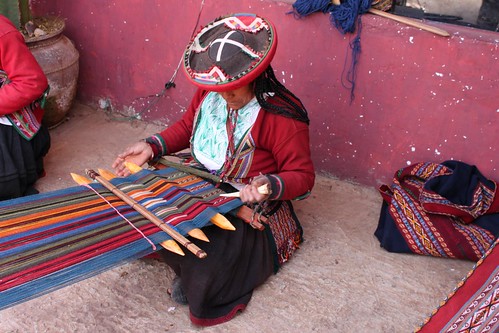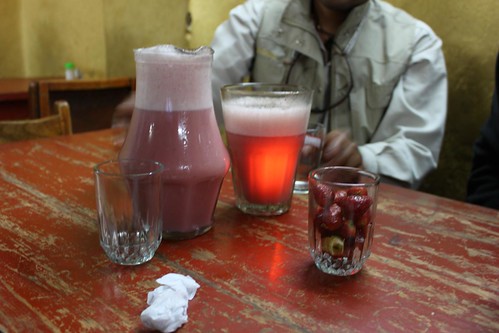On April 30, we left the Galapagos and travelled with friends Mike and Nicki to Cusco, Peru, the centre of the Inca empire and the starting point for Machu Picchu. After the heat and humidity of the Galapagos, the crisp mountain air was a welcome change, although it took a few days and several cups of coca tea to adjust to the altitude.
We opted for a three day tour to visit the Sacred Valley (along the Urubamba River) and Machu Picchu. On the first day, we stopped at a llama farm where we learned the difference between llamas, alpacas and vicuñas. Somehow I managed to offend a llama and can assure you that they really do spit. Yuck!
Our guide, Miguelangel took us to the ruins at Pisac where we saw the agricultural terraces, the sun temple, and the skilled masonry of the Inca who could fit stones together so perfectly that not even a piece of paper can slide between them.
We lunched at Doña Clorinda’s where I tried the rocoto relleno (stuffed hot peppers) and a fava bean salad, and Roger opted for the lomo salteado (a beef stew).
Our final stop for the day was the town of Ollantaytambo, where we visited another Inca site with many agricultural terraces, beautifully carved polygonal stones, and a wall of 6 megaliths about 13 feet high. In addition to the carving and placing of the stones, what is amazing is how the Inca moved them from a quarry across the river a few kilometres away.
After dinner and a night’s rest in Ollantaytambo, we were up bright and early to catch the train to km. 104 where we met Miguelangel and began a full day hike along the Inca trail to the Sun Gate (Inti Punku) at Machu Picchu.
En route, we admired the beautiful landscape and colourful orchids, and passed through the sites of Chachabamba and Wiñay Wayna (Forever Young).
By late afternoon, we reached the Sun Gate and lingered for a while to marvel at Machu Picchu below. Miguelangel led us down through Machu Picchu which took a while as we stopped for numerous photos. A bus took us to the town of Aguas Calientes where we celebrated with pisco sours and enjoyed another delicious Peruvian meal.
The next day we returned to Machu Picchu for a tour with Miguelangel who pointed out features (terraces, storehouses, water fountains, sun temple) that we had seen at other sites but on a much grander scale.
At noon we met up with three other friends (Len, Monique and Bill) who had just finished the full 4 day trek into Machu Picchu – another reason to celebrate with pisco sours!
We liked Miguelangel so much that we booked him to take us the following day to Salineras and Moray. Salineras is a saltmine run by the people in the nearby town of Maras. Saltwater flows from the mountain, and is channelled into an impressive array of salt pools where it evaporates and the salt is harvested.
Moray is a site where the Inca built circular terraces into several natural depressions and is thought to have been used for agricultural experiments.
We also stopped at a weaving cooperative in Chinchero where a Quechua woman demonstrated how they clean the wool with lather from a root and use natural dyes from plants and the Cochinilla insect. Although we don’t have a decent dining room table, we now have two beautifully woven table runners.
Our final stop was back in Cusco where we sampled chicha, an alcoholic beverage made from corn. This bar served a variant made with strawberries called frutillada — in my opinion, an acquired taste.
On our last day, we visited Qorikancha in downtown Cusco, an Incan temple to the sun that was once covered in sheets of gold. The Spanish took the gold and built a church on the site. Over the years earthquakes have damaged the church but the Inca walls have remained intact.
After bidding good-bye to Mike and Nicki, Roger and I went to Sacsayhuaman on the northern edge of Cusco. This site has three massive zigzag walls with some enormous stones and an incredible view of the city below. Sacsayhuaman is still used to celebrate the winter solstice (called Inti Raymi).
Anyone I’ve ever spoken to who has visited Cusco and Machu Picchu has only good things to say, and now I am one of those people. The mountain landscapes, the Inca stonework, and the brilliant colours of the Quechua clothing combine to create an experience of natural and cultural beauty.
For more pictures, see:
http://www.flickr.com/photos/sataylor/sets/72157626686113048/
Categories:

